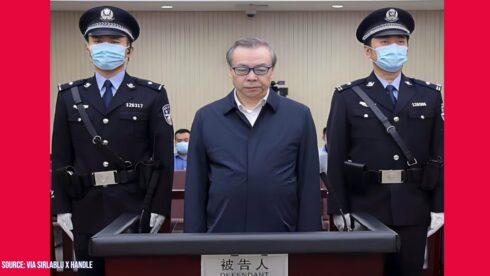Governor Charles Soludo of Anambra State has signed a bill into law allowing the deduction of funds from Local Government accounts. This decision is seen as a strategic alignment with recent rulings by the Supreme Court, ensuring that financial activities within the Local Government (LG) system are constitutionally regulated. The law comes amidst growing calls for Local Government autonomy, a subject that has sparked nationwide debates.
Governor Charles Soludo emphasized that the legislation is not aimed at weakening the Local Government structure but rather aims to prevent potential financial mismanagement. His stance on the issue is rooted in a pragmatic understanding of the challenges that come with full autonomy for Local Government Areas (LGAs) across Nigeria, particularly regarding financial transparency and accountability.
Governor Charles Soludo Cautions Against Local Government Autonomy
While addressing concerns, Governor Charles Soludo firmly stated that full autonomy for Nigeria’s 774 Local Government Areas could result in what he described as “humongous chaos.” According to him, the current system, which includes the oversight role of state governments, is essential for maintaining order and ensuring the judicious use of public funds. He argued that the Local Government system, if left entirely autonomous, may struggle with the complexities of governance and financial management.
Charles Soludo also mentioned that many LGAs are ill-prepared for the responsibilities that come with autonomy, especially given the existing administrative and financial challenges. In his view, granting complete independence to LGAs without proper systems in place would lead to more harm than good, exacerbating issues of inefficiency and corruption.
Supreme Court Ruling and Its Implications
Governor Charles Soludo’s actions align with a recent Supreme Court judgment that addresses the financial relationships between state governments and their local counterparts. The new law passed by the Anambra House of Assembly effectively operationalizes the court’s decision, ensuring that the management of Local Government funds is constitutionally guided. According to Charles Soludo, this legal framework is critical for preventing mismanagement and ensuring that Local Government finances are used for the intended purposes.
Charles Soludo explained that the bill signed into law is not meant to undermine Local Government autonomy but rather to provide a structured mechanism for the proper utilization of funds. Without this legal backing, he warned, the Local Government system would be left vulnerable to financial misappropriation and administrative inefficiencies.
Concerns Over Financial Mismanagement in Local Governments
One of the major reasons behind Governor Charles Soludo’s reluctance to fully support Local Government autonomy is the issue of financial mismanagement. He argued that many Local Governments in Nigeria lack the necessary controls and oversight to handle large sums of money effectively. The Governor stressed that without proper legal frameworks in place, the risk of financial chaos within the LG system is high.
Moreover, Charles Soludo pointed out that the current state of some LGAs in the country reflects a history of corruption and mismanagement, which would only worsen under full autonomy. He emphasized that the new laws in Anambra are designed to prevent such occurrences by ensuring that Local Government funds are subject to proper scrutiny and management.
The Role of the Anambra House of Assembly in Ensuring Fiscal Responsibility
The Anambra House of Assembly played a pivotal role in passing the new laws governing the deductions from Local Government funds. According to Governor Soludo, this legislative action was necessary to ensure compliance with the Supreme Court ruling and provide clear guidelines for the use and management of Local Government finances. The Governor praised the Assembly for its proactive approach in safeguarding public funds.
Charles Soludo also warned that if the State House of Assembly had failed to enact these laws, the Local Government system would have been left without a legal framework to manage its finances. This could have led to administrative chaos and the misuse of public resources, undermining the development goals set for the Local Government areas.
Future Implications of the New Laws on Local Government Administration
With the new laws in place, the future of Local Government administration in Anambra is expected to be more structured and accountable. Governor Charles Soludo expressed optimism that the law would provide a more sustainable financial management system for the Local Government areas, ensuring that public funds are used for their intended purposes. The law is also expected to foster better collaboration between the state and Local Government levels.
However, the debate over Local Government autonomy is far from settled. While some advocate for full independence of the LGAs, others, including Governor Charles Soludo, believe that a balanced approach is necessary. The Governor’s actions reflect a cautious yet proactive stance aimed at preserving the integrity of the Local Government system while avoiding the pitfalls of unregulated autonomy.
Table of Contents
Discover more from OGM News NG
Subscribe to get the latest posts sent to your email.














